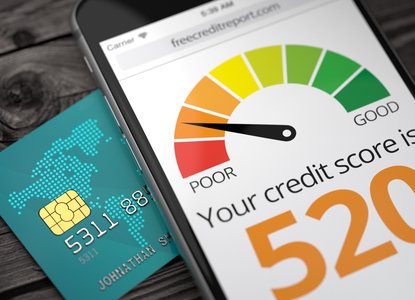How does a credit card work? Financial terms explained
As a young person, it is likely that you're contemplating borrowing money. This will throw up questions about how best to use a credit card to borrow money for those big ticket items like a car, a phone or perhaps a house deposit. It can be harder for young adults to take out loans as they may have little or no credit history.
Before you get started on getting a credit card, building credit or figuring out your credit rating, we believe it's important to understand these phrases and the terminology you'll face in order to give you the confidence to start asking questions and making the most informed decision. We've put together a glossary of terms and series of animations below to help you get your head around the words you might come across when applying for a credit card.

As part of our Words that Count series, financial content creator Laura Ann Moore helps to explain the importance of using a credit card responsibly.
Laura thinks credit cards are a great way to build credit, spend safely and keep track of your spending - but it's important to remember that credit cards are not free money. Only spend on a credit card what you know you can pay back and consider using a budget planner to help you keep track of your credit card spending.
Take a look at the video below for her credit card tips, read our glossary of terms and then take our quiz to test your knowledge.
Jump to quiz
Jump to advice on using a credit card
Watch Laura's video about how to use a credit card responsibly
Take the quiz to test your knowledge
Glossary of terms related to credit cards and borrowing money
The more we understand about financial terms, the more empowered we feel to make the most informed decisions. As part of our Words that Count series, we have outlined some definitions to help you better understand the terms related to credit cards. We hope that you will feel more confident to build your own relationship with borrowing money and using credit cards responsibly.
What is a credit card?
Before we get started, let's make sure we're all on the same page! A credit card is similar to a debit card as they are both plastic cards used instead of cash to pay for products and services. However, the difference is where the money is coming from. A credit card gives you access to credit (or more simply put, money!) you can spend to make purchases, reduce debt and earn rewards. A credit card may be issued by a bank, building society, or other type of credit lender.
Credit cards work like loans but instead of getting money in your bank account you get credit on your credit card. Your lender will set you a credit limit, and you’ll be able to spend as much of it as you need before paying back some or all of your balance each month.
In order to use your credit card responsibly, it's important to keep a track of what you are spending and make sure the pre-arranged loan and credit limit is a sensible amount which you know you will be able to repay. It is recommended to pay off your credit card in full each month to avoid getting into unmanageable debt or difficulty.
Credit rating
A credit rating is for businesses and determines how reliable they are to repay loans. However, an individual can also be assessed on their ability to repay money and this is called your credit score. Your credit score is expressed as a three digit number assigned by a credit checking company, for example Experian, which helps to measure your ability to repay any money that you might borrow. This can be negatively affected by making late payments and the affordability of how much money you’re asking to borrow.
Find out more about understanding your credit score here.
Credit checks
When a company looks at information from your credit report to understand your financial behaviour, they are carrying out a 'credit check'. They don’t always need your consent to do this, but they must have a legitimate reason. For example, if you have just applied for a loan with them, the company will run a credit check to see what your credit history looks. Before the company makes their final decision, they will look at your credit check to see how well you have previously managed your money in terms of borrowing money, paying back debts like credit card payments and regular bills like phone contracts.
Building credit
As Laura mentioned in her video, credit cards are a great way to start building your credit score. Building credit is the process of creating a successful history of borrowing and then paying back money in a timely and responsible fashion. This will help to demonstrate your reliability to future lenders. You can build you credit score in a number of ways. The simplest way is to make payments on time on bills like your monthly phone bill or rent.
For more advice on building credit, visit the Experian website.
Loans
You might be wondering what is the difference between a loan and a credit card? A loan is a sum of money borrowed from a lender (for example, a bank or building society) with an agreement between you (the borrower) and the bank or building society (the lender) to repay the money. This agreement is legally binding and not being able to meet the repayment deadlines and requirements could affect your credit score, meaning you might not be able to borrow money in the same way in the future.
Find out more about borrowing
Financial expert Charlotte Ransom explains more about reasons for borrowing money and the best ways to go about it:




